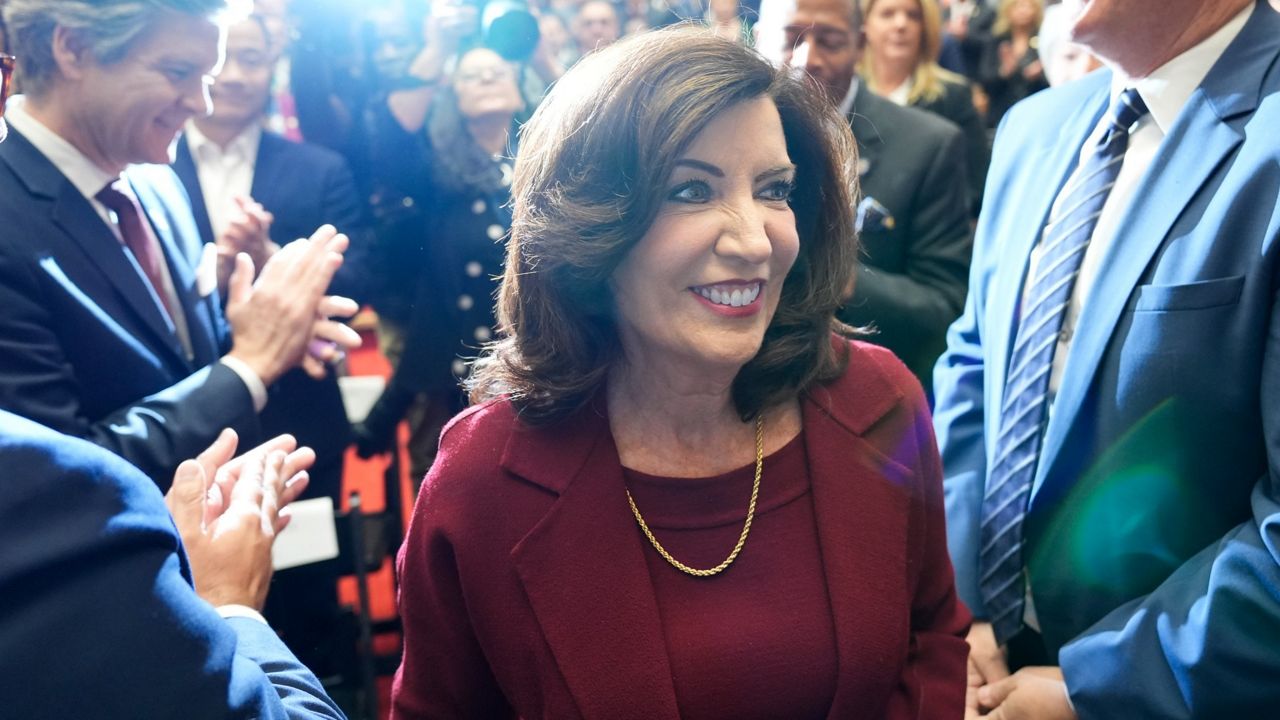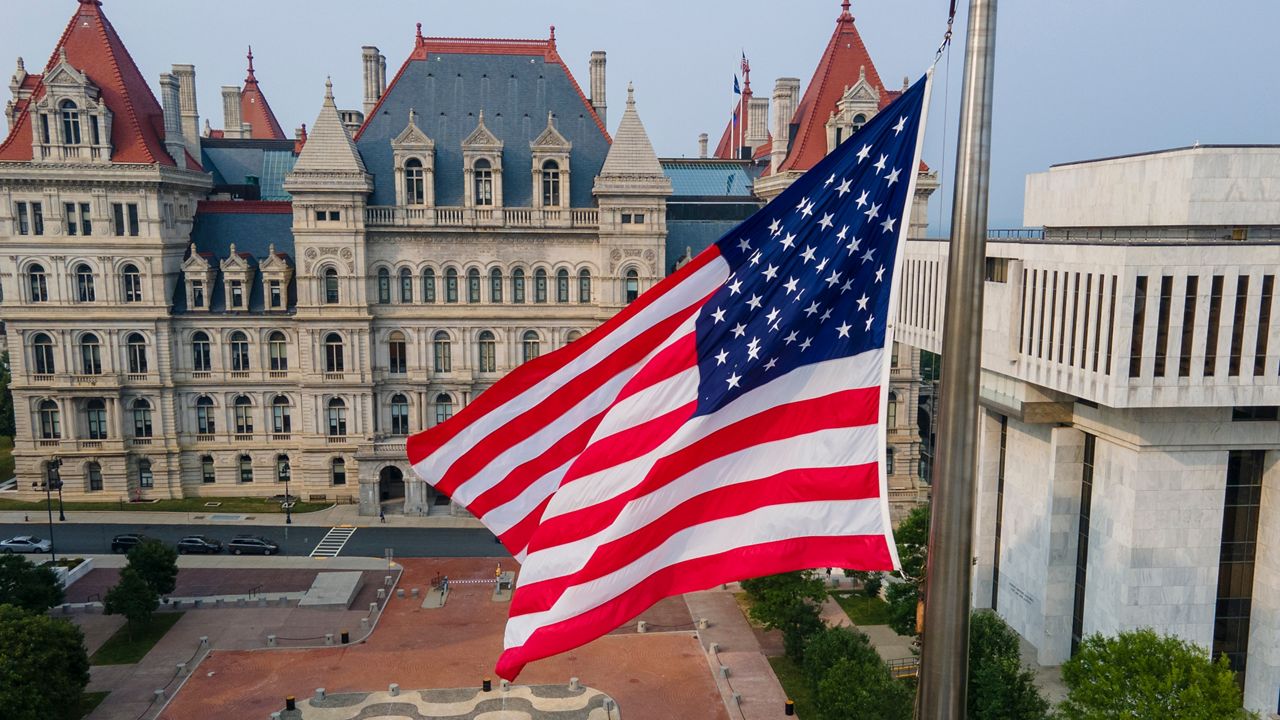Mayor Eric Adams on Wednesday called Jordan Neely’s death a “tragedy that never should have happened,” while urging state lawmakers to back a controversial mental health plan he introduced last year.
A directive Adams issued in November authorized a handful of city agencies to involuntarily hospitalize New Yorkers in crisis who appear unable to meet their own “basic needs.”
At a press conference Wednesday, Adams said he was putting the plan forward as part of a bill called the Supportive Interventions Act — and asked his “partners in Albany” to pass the legislation.
What You Need To Know
- Mayor Eric Adams on Wednesday called Jordan Neely’s death a “tragedy that never should have happened,” while urging state lawmakers to back a controversial mental health plan he introduced last year
- A directive Adams issued in November authorized a handful of city agencies to involuntarily hospitalize New Yorkers in crisis who appear unable to meet their own “basic needs.” On Wednesday, he said he was putting the plan forward as part of a bill called the Supportive Interventions Act
- His announcement drew renewed scrutiny to his plan. In a statement, the head of the New York Civil Liberties Union argued involuntary hospitalization would “do nothing to address the root drivers of homelessness or the chronic lack of access to mental health care"
“This bill addresses a series of flaws and gaps in the New York State Mental Hygiene Law that are making it more difficult to help those who don’t know they need help,” he said. “We see this in one heartbreaking case after another.”
“We’ll be making a major push on this legislation in the remaining weeks of the session,” he added. “I urge our state lawmakers to pass this bill, and I urge the governor to increase mental health resources in her next budget, as she did with this one.”
Neely, who cycled in and out of the city’s hospitals and jails in the years before he was killed by another subway rider last week, could have benefited from the “kind of care” New Yorkers receive after they are involuntarily hospitalized, the mayor said.
“One thing we can say for sure, Jordan Neely did not deserve to die,” he said. “And all of us must work together to do more for our brothers and sisters struggling with serious mental illness.”
“I want to state up front that there were many people who tried to help Jordan get the support he needed, but the tragic reality of severe mental illness is that some who suffer from it are at times unaware of their own need for care,” he added. “And all too often, they’re caught up in this cycle of violence, sometimes as perpetrators or, far more often, as victims.”
Adams faced a barrage of criticism when he first unveiled the directive last year, with advocates and city officials calling its legality into question.
Wednesday’s announcement drew renewed scrutiny to his plan. In a statement, the head of the New York Civil Liberties Union argued involuntary hospitalization would “do nothing to address the root drivers of homelessness or the chronic lack of access to mental health care.”
“In the name of Jordan Neely, Mayor Adams is again responding to homelessness and unmet mental health need with the failed approaches of force and coercion,” NYCLU executive director Donna Lieberman said. “We know that forcing anyone into treatment is a recipe for failure.”
Lieberman also denounced Kendra’s Law — New York legislation that allows courts to mandate assisted outpatient treatment for defendants with severe mental illness — which Adams said the Supportive Interventions Act would “strengthen.”
"For more than 20 years, Kendra's Law has denied people the fundamental right to determine the course of their medical treatment, destroying trust in providers in the process," Lieberman said.
For the past week, protesters and elected officials have called on the Manhattan district attorney's office to file charges against Daniel Penny, the former Marine seen on video putting Neely in a fatal chokehold. The city’s medical examiner last week ruled Neely’s death a homicide.
Adams on Wednesday noted that the "circumstances surrounding his death are still being investigated,” adding that the city has “no control over that process.”
Still, the mayor offered his condolences to Neely’s loved ones, saying the 30-year-old’s death “has devastated his family and shocked his fellow New Yorkers.”
“Jordan Neely’s life mattered. He was suffering from severe mental illness, but that was not the cause of his death. His death was a tragedy that never should have happened,” Adams said. “My heart goes out to Jordan’s family, who was suffering great pain and uncertainty about the circumstances of his death.”









